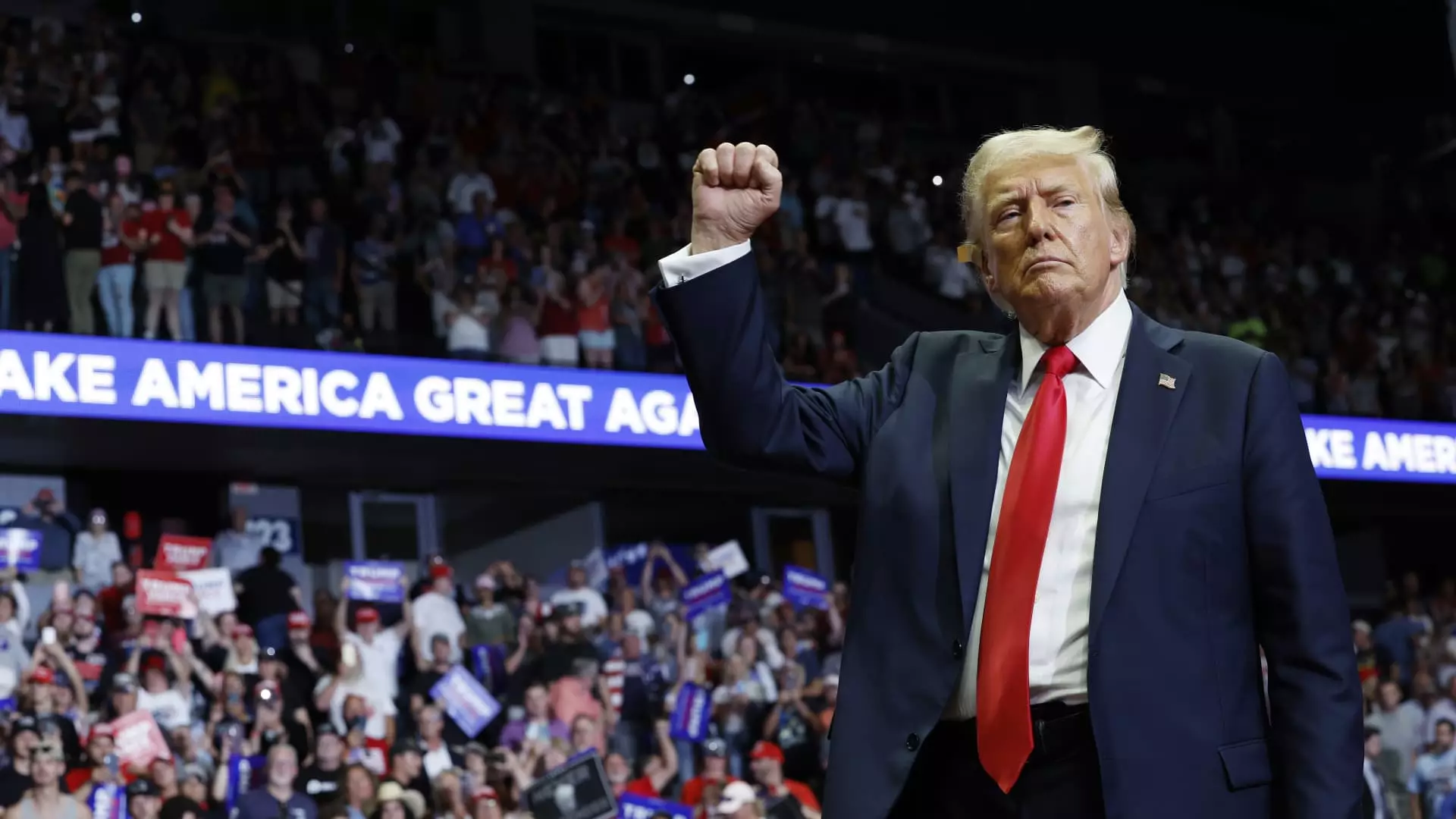Former President Donald Trump’s decision to headline the biggest bitcoin conference of the year in Nashville has left many in the cryptocurrency community surprised. This move comes after years of public dismissal of bitcoin and other cryptocurrencies by Trump. His statements in the past, where he referred to bitcoin as a “scam” and expressed a preference for the dollar as the world’s currency, stand in stark contrast to his current engagement with the bitcoin community. It appears that Trump’s shift on Bitcoin is driven by a growing interest in the cryptocurrency sector and the need to secure campaign funds for the upcoming presidential contest in 2024.
Political Campaign Cash
The fact that Trump is hosting an accompanying fundraiser in Nashville with tickets priced at $844,600 raises questions about the influence of money in politics. BTC Inc. CEO David Bailey’s pledge to raise $100 million and turn out over 5,000,000 voters for Trump’s re-election effort emphasizes the significant role that campaign cash plays in American politics. The involvement of top tech talent and venture capitalists, such as Tyler and Cameron Winklevoss, Marc Andreessen, and Ben Horowitz, in contributing substantial amounts to the Trump campaign highlights the growing intersection between the tech and political sectors.
With the Republican Party vowing to ease crypto regulations in contrast to the Biden-Harris administration’s approach, the crypto sector is emerging as a crucial voting issue for November. The involvement of crypto lobbyists and supporters raises questions about the Democratic Party’s stance on crypto regulation in the coming years. Vice President Kamala Harris’s interest in the crypto space, as indicated by queries from her campaign, suggests a potential shift in policy direction if she were to be elected president. The dynamics between the two major parties regarding crypto regulation are likely to shape the future of the industry.
The sudden influx of interest and cash from the country’s top tech talent, including billionaire twins Tyler and Cameron Winklevoss, has bolstered Trump’s campaign coffers. These contributions in cryptocurrencies like bitcoin, ether, and stablecoin USDC underscore the increasing prominence of digital assets in political fundraising. The endorsement of Trump by tech elites and venture capitalists like Sequoia Capital partners and David Sacks reveals a growing alignment between the tech industry and political candidates supportive of the crypto sector.
The recent thaw in Trump’s sentiment towards digital assets coinciding with the influx of interest and cash from tech leaders reflects changing dynamics in the political landscape. The efforts to court support from pro-crypto super PACs like Fairshake, which has raised over $200 million to elect candidates favorable to the cryptocurrency industry, signal a reorientation of political strategies. The vice president’s team’s attempts to win support from undecided big tech donors indicate a shifting focus on engaging the tech community in the political arena.
Trump’s appearance at the bitcoin conference in Nashville signifies a significant shift in his stance towards cryptocurrency and reflects the evolving intersection of technology and politics. The engagement of tech elites and venture capitalists in funding political campaigns underscores the growing influence of the tech sector in shaping policy and regulatory decisions. The repercussions of Trump’s engagement with the crypto community extend beyond the election cycle, with potential implications for the future direction of crypto regulation and political engagements in the United States.


Leave a Reply